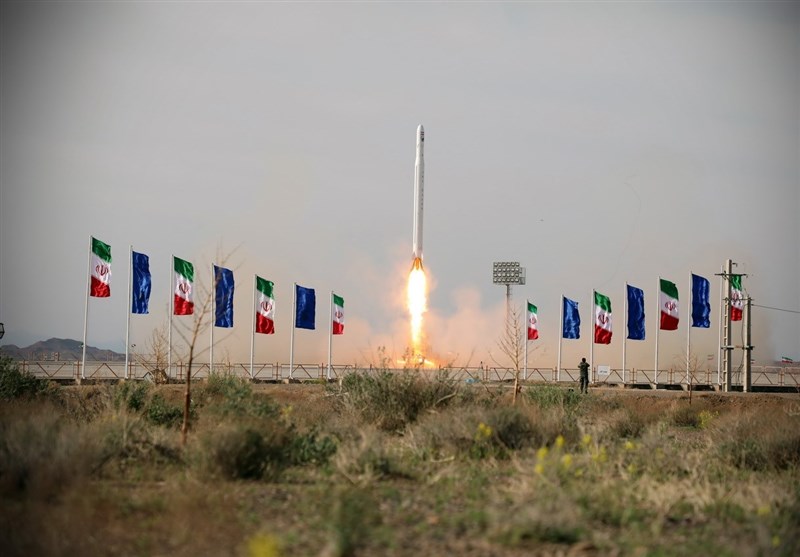The Air Force of Iran’s Islamic Revolutionary Guards Corps (IRGC) has launched a second domestically-manufactured military satellite into earth’s orbit.
According to Iran’s Tasnim news agency, the Noor-2 satellite was launched on March 8 by a three-stage satellite launch vehicle (SLV) using a combination of solid and liquid fuel propulsion systems. The SLV, dubbed Qased, translates to “messenger” in Persian.
At a speed of 7.7km per second, it took the satellite eight minutes to reach orbit at an altitude of approximately 500 kilometers.
The operation was carried out from a launch pad located in Shahrud Desert in northeastern Iran.
Speaking at the launch ceremony of the Noor-2 satellite, the commander-in-chief of the IRGC, Major General Hossein Salami, praised the IRGC for the “successful” launch and said that future launches were also planned.
He also stated that, despite sanctions against Iran’s space program, the IRGC has continued to make advances in the aerospace field.
Since the launch of Iran’s first domestically-manufactured military satellite, Noor-1, in April 2020, Iran has been focused on developing more rocket engines and conducting more space launches.
In early February, Ali Jafarabadi, a space division commander in IRGC’s aerospace branch, said that the end goal was for Iran to achieve an “established presence” in space in four years.
The Noor-1 satellite was also launched by Qased and placed into orbit at an altitude of 425 kilometers.
The IRGC is cooperating with the Iranian Space Agency and the Defence Ministry in the production of military missiles.
Iranian officials have reiterated that the country’s space program aims to boost business and does not violate any international agreements. Tehran has been domestically producing new missiles despite American objections to Iran’s growing arsenal of ballistic weapons. The US has demanded that Iran halt its missile program amid rising tensions between the two countries.
In 2015, the United Nations passed resolution 2231 which urged Iran to refrain from developing ballistic missiles capable of delivering nuclear weapons for up to eight years after the signing of the Joint Comprehensive Plan of Action (JCPOA), an agreement reached between Tehran and six world powers to limit its nuclear program.







 Russian peacekeeping forces, deployed in the Karabakh (Garabagh) region of Azerbaijan since 2020, have commenced their withdrawal from the area.
Russian peacekeeping forces, deployed in the Karabakh (Garabagh) region of Azerbaijan since 2020, have commenced their withdrawal from the area.
 The number of evacuees from flooded areas in Kazakhstan has reached 97,852 people, including about 32,856 children since March 27.
The number of evacuees from flooded areas in Kazakhstan has reached 97,852 people, including about 32,856 children since March 27.
 The Islamic holy month of fasting, Ramadan comes to an end this week with the celebration of a joyous festival called Eid (meaning “festival” in Ar...
The Islamic holy month of fasting, Ramadan comes to an end this week with the celebration of a joyous festival called Eid (meaning “festival” in Ar...
 Azerbaijan officially unveiled the logo for the upcoming 29th session of the Conference of the Parties to the United Nations Framework Convention o...
Azerbaijan officially unveiled the logo for the upcoming 29th session of the Conference of the Parties to the United Nations Framework Convention o...



